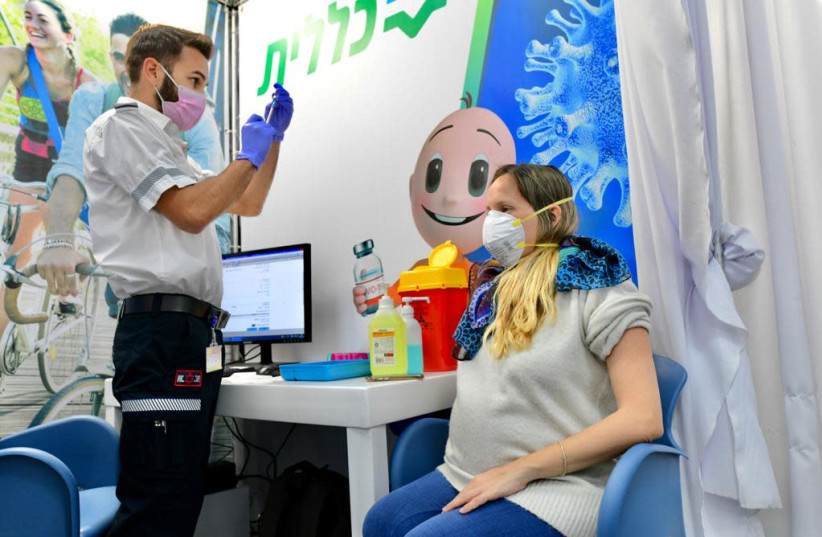The Ministry of Health released its recommendations on vaccinating pregnant or breastfeeding women on Thursday, stating that women in the first trimester should not receive the coronavirus vaccine. In it, the ministry recalls that the most serious complications for pregnant women who contract COVID-19 happen when they are in the third trimester. Thus, the recommendation for pregnant women in the first trimester is to wait until the second to get vaccinated. This is not directly related to the effects of the vaccine, but to the sensitive developmental stages of the fetus and the possibility of a miscarriage. The ministry recommends this “to avoid any suspicion, even if coincidental, of a correlation between the vaccine” and these possible conditions and effects, the guidelines say. The ministry also emphasized that there is no evidence of harm or danger to the mother or fetus caused by the vaccination. Women planning to become pregnant should preferably be vaccinated before starting the process, while women who have already taken the first dose and become pregnant should continue with the second. In addition, pregnant women who are in high-risk categories, or are in their second or third pregnancy, should also be vaccinated.
cnxps.cmd.push (function () {cnxps ({playerId: ’36af7c51-0caf-4741-9824-2c941fc6c17b’}). render (‘4c4d856e0e6f4e3d808bbc1715e132f6’);});
if (window.location.pathname.indexOf (“656089”)! = -1) {console.log (“hedva connatix”); document.getElementsByClassName (“divConnatix”)[0].style.display = “none”;}Health experts have praised Israeli health officials for their quick initiative to promote vaccinations for pregnant women, despite doubts. “Let’s look at some facts: pregnant women are more likely to develop a severe form of the disease than their colleagues who are not,” said Yariv Yogev, director of the obstetrics and gynecology department at Ichilov Hospital at Sourasky Medical Center The Jerusalem Post on Wednesday. This comment came in response to the WHO announcement on Tuesday that they do not recommend the Modern vaccine for pregnant women. The WHO also recommended that pregnant women who fall into the high-risk categories be vaccinated. “That means they still believe the vaccine is safe,” said Yoav Yinon, an associate professor of obstetrics and gynecology at the Sheba Medical Center in Tel Hashomer. The Jerusalem Post in that same interview. Sheba currently has 12 pregnant women in critical condition. Health Minister Yuli Edelstein said on Tuesday: “I would say, not being a doctor, that when I see these terrible cases of several pregnant women in severe coronavirus, I tell myself, it’s probably even worse to run the small risk of getting the vaccine instead of being in a terrible situation at the hospital. “This is because the conditions of three different women who tested positive for the new coronavirus during pregnancy worsened, according to reports from their respective hospitals in Thursday. A 34-year-old pregnant woman who tested positive for coronavirus was transferred to Sheba Medical Center in Tel Hashomer on Thursday, when her condition worsened. It is currently connected to an extracorporeal membrane oxygenation machine (ECMO). That same fate was suffered by two women on Thursday morning, also pregnant, also with COVID-19. Both were connected to ECMO machines in Beilinson. Dr. Ilya Kagan de Beilison, who heads the hospital’s coronavirus emergency room, said “her conditions are very serious and not stable”. They will remain connected to ECMO machines “until they get better”. The ECMO machine facilitates the respiratory needs of the heart and lungs by pumping the patient’s blood externally. Last week, the Ministry of Health approved the coronavirus vaccine for pregnant women. Pfizer had published previous studies that included pregnant women, although they did not know they were pregnant at the time. Both pregnancy and birth were normal. Maayan Jaffe-Hoffman and Rossella Tercatin contributed to this report.
